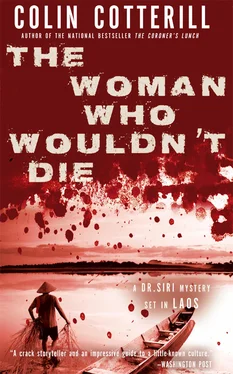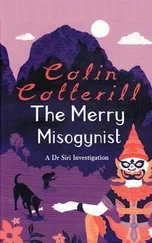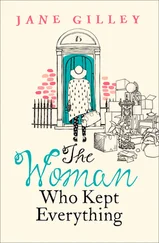Colin Cotterill - The Woman Who Wouldn't die
Здесь есть возможность читать онлайн «Colin Cotterill - The Woman Who Wouldn't die» весь текст электронной книги совершенно бесплатно (целиком полную версию без сокращений). В некоторых случаях можно слушать аудио, скачать через торрент в формате fb2 и присутствует краткое содержание. Жанр: Триллер, на английском языке. Описание произведения, (предисловие) а так же отзывы посетителей доступны на портале библиотеки ЛибКат.
- Название:The Woman Who Wouldn't die
- Автор:
- Жанр:
- Год:неизвестен
- ISBN:нет данных
- Рейтинг книги:3 / 5. Голосов: 1
-
Избранное:Добавить в избранное
- Отзывы:
-
Ваша оценка:
- 60
- 1
- 2
- 3
- 4
- 5
The Woman Who Wouldn't die: краткое содержание, описание и аннотация
Предлагаем к чтению аннотацию, описание, краткое содержание или предисловие (зависит от того, что написал сам автор книги «The Woman Who Wouldn't die»). Если вы не нашли необходимую информацию о книге — напишите в комментариях, мы постараемся отыскать её.
The Woman Who Wouldn't die — читать онлайн бесплатно полную книгу (весь текст) целиком
Ниже представлен текст книги, разбитый по страницам. Система сохранения места последней прочитанной страницы, позволяет с удобством читать онлайн бесплатно книгу «The Woman Who Wouldn't die», без необходимости каждый раз заново искать на чём Вы остановились. Поставьте закладку, и сможете в любой момент перейти на страницу, на которой закончили чтение.
Интервал:
Закладка:
The seeds of the Lao Issara — Free Lao — movement were watered in those camps and many of our youth went on to be leaders in the uprising. The French realized too late that engendering a pride in Lao nationhood was perhaps not such a good idea after all. They disbanded the camps but there was no disbanding the hearts of the Lao now joined in comradeship. The damage was done. We knew who our enemy was, and he wasn’t Thai .
7
It had been a long time since Inspector Phosy didn’t have bad weather to grumble about. Drought had given way to monsoons, to flash floods, to dust storms. Crops had been lost to locusts. Plagues of mosquitoes had been unleashed when they flooded the land for the new dam and with the humidity being what it was, dengue, the bleeding fever plague, was rife.
But here they were on a bright Sunday morning chugging along on his lilac Vespa motor scooter. A cool breeze massaged their faces; Phosy, Dtui and Malee. A family outing that didn’t involve digging. Not dirt anyway. They were in no hurry so Phosy sat on 30 k.p.h., which gave him ample time to avoid disappearing into a pit or running into a stray pig or swallowing flies as they sang. Ban Elee, their destination for the day, was forty-eight kilometres from Vientiane off Route Thirteen, an unspectacular straight road passing lookalike villages every ten minutes or so. Once Phosy had read Daeng’s letter, there was no question that he would make this trip. Madame Daeng wasn’t one to waste anybody’s time.
They arrived stiff from the ride and stretched and clicked joints and walked around the bike to get the circulation back in their legs. There was nothing to confirm that they’d arrived at their destination apart from the odometer on the Vespa and the word of a farmer they’d spoken to earlier. There was no signpost and nothing remarkable about Ban Elee to distinguish it from every other village.
‘You lost?’ called a woman who sat on a flimsy balcony threading jasmine on to a garland string.
‘Can’t be lost if you have no idea where you’re going,’ Dtui replied and smiled at her.
This was to be their tactic for the day. Unplanned tourism.
‘From Vientiane, are you?’ asked the woman.
‘How’d you know?’
‘It’s only city people would waste good petrol going on a joyride in this day and age.’
‘We saved up for it,’ said Dtui. ‘We wanted our daughter to see the countryside while there’s still some here to see. Introduce her to some good country people.’
‘And where’s that accent from?’
‘Udomxai. I’m a northerner. I miss the countryside too.’
The woman chuckled. Her large breasts jiggled as she did so.
‘You know? My husband just brought us down some custard apples. Sweetest little buggers you ever tasted. Come up and sample a few, why don’t you?’
Ten minutes later there was a good-sized gathering on that small balcony and Malee was being bounced from lap to lap, showing no preference for stranger or relative. A dozen villagers had naturally gravitated to the lei-threader’s hut and they already knew that Dtui was a nurse, Phosy was a policeman, and Malee would be either a doctor or a psychologist. The latter was something of a gamble as Laos didn’t have a psychologist but Dtui predicted there’d be a huge demand by the time her daughter graduated. This was the village life that Dtui so missed. These people were four hundred kilometres from her own village but they were still her people. There was an old saying: people of a different village are herbs of a different garden. But she knew that wasn’t true. She believed that somewhere in a sixty-people grass hut village in Kenya there was a lei-threader and a bicycle repair man and a seller of zinc watering cans, and if some cosmic lightning strike were to magically transport her there, she’d know exactly how to act and she’d be accepted. Villages were about people.
Phosy was advising some elder about the construction of a dyke. Dtui took advantage of his distraction by leading them in to the investigation.
‘That’s a splendid house up there on the buff,’ she said. ‘I wouldn’t mind living in a place like that. Is it yours, Headman Gop?’
The old man laughed.
‘I wouldn’t want to live there,’ he said. ‘Neither would you.’
‘Why not?’ Dtui asked.
‘It’s haunted,’ said one teenage girl, as skinny as a raindrop down a window.
There were a few nervous laughs. Some looked at her as if she’d spoken out of turn. But Dtui knew they’d be unable to resist the country habit of telling a good yarn.
‘Don’t make fun of me now, girl,’ said Dtui.
‘Do you not believe in ghosts then, Nurse Dtui?’ asked the headman, his good eye attempting to pick her out amid the crowd.
‘I’ve never seen any nor heard a story that could convince me,’ said Dtui.
‘Then hear this one,’ he said. ‘That house you covet up there on the hill, it belonged to a royalist general and his wife. Like most of ’em, the general was more intent on making money than on soldiering. They say he got a small fortune tucked away. All he had to do was stay alive and they’d have enjoyed a very comfortable retirement. But he went and stepped on a mine instead and left the woman a rich widow. He was from here, a son of the earth, but she saw herself being a cut above all us. Plastered her face in make-up just to let us know she could afford it. She lived in that house up there with one live-in girl — hired us to do all the manual work: cut down her papayas, clean her toilet. So we weren’t what you’d call close. Then, three months ago, give or take a week, she got herself killed.’
‘No? How?’ Dtui asked.
‘She’d been away on one of her business trips,’ said the lei-threader, taking over the story. ‘She was gone longer than usual. Wouldn’t have known she was back if it weren’t for that noisy old truck she arrived in. She had a girl working for her at the house. Lived in a single room at the back. She’d be the one come down to do the shopping. But that evening, the girl didn’t come down to get the old lady any food. Just picked up some petrol at the hand pump. So we assumed her majesty had brought something back from the town. We all went to bed, as normal. When the fighting was on we didn’t take much notice of shots in the night. But there were these two shots and we all woke up. It sounded close, you see. We have our own, what you’d call, security force. We take it in turns to patrol with a rifle. We thought it was the guard shooting at something. But one of our lads who was in the military said it sounded more like a handgun.’
‘I knew it was a handgun,’ said the headman.
‘So, we all ask around and see that everyone in the village was accounted for,’ the lei-threader continued. ‘And Ott, who was on duty that night, comes running from the back fields and says he thinks the shot was from the hill. From Madame Peung’s house. So up we all go, none of us in a hurry to run into a gunman. And the live-in girl comes running out of the bushes in a red fit. “She’s dead,” she shouts. “The widow’s dead and they took my pig.” We had no idea why she was going on about pigs but sure enough, there’s the widow’s body lying in a pool of blood on her bed. Hole through her head.’
‘We didn’t catch the gunman,’ said the headman. ‘We assumed it was a burglar. There are a lot of old soldiers begging and living rough. Madame Peung’s house would have been an inviting target, away from the village as it is. We heard the truck drive off so he must have stolen that. We took the widow’s body down to the temple and sent a message on to kilometre fifty-six. That’s the nearest police box to here. What we’d normally do is contact the family of the deceased and get them to organize the cremation.’
Читать дальшеИнтервал:
Закладка:
Похожие книги на «The Woman Who Wouldn't die»
Представляем Вашему вниманию похожие книги на «The Woman Who Wouldn't die» списком для выбора. Мы отобрали схожую по названию и смыслу литературу в надежде предоставить читателям больше вариантов отыскать новые, интересные, ещё непрочитанные произведения.
Обсуждение, отзывы о книге «The Woman Who Wouldn't die» и просто собственные мнения читателей. Оставьте ваши комментарии, напишите, что Вы думаете о произведении, его смысле или главных героях. Укажите что конкретно понравилось, а что нет, и почему Вы так считаете.












